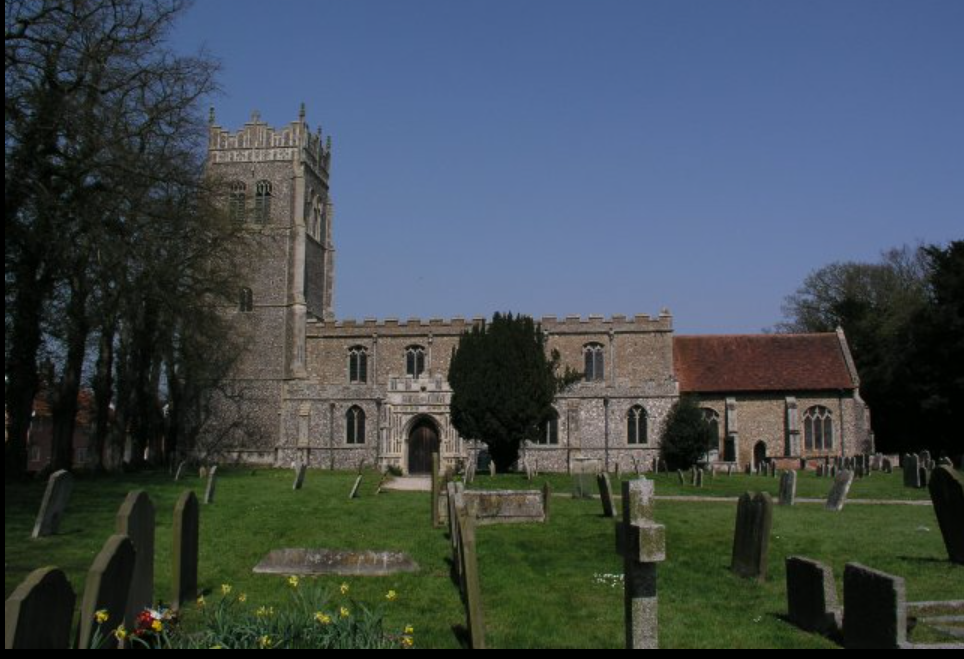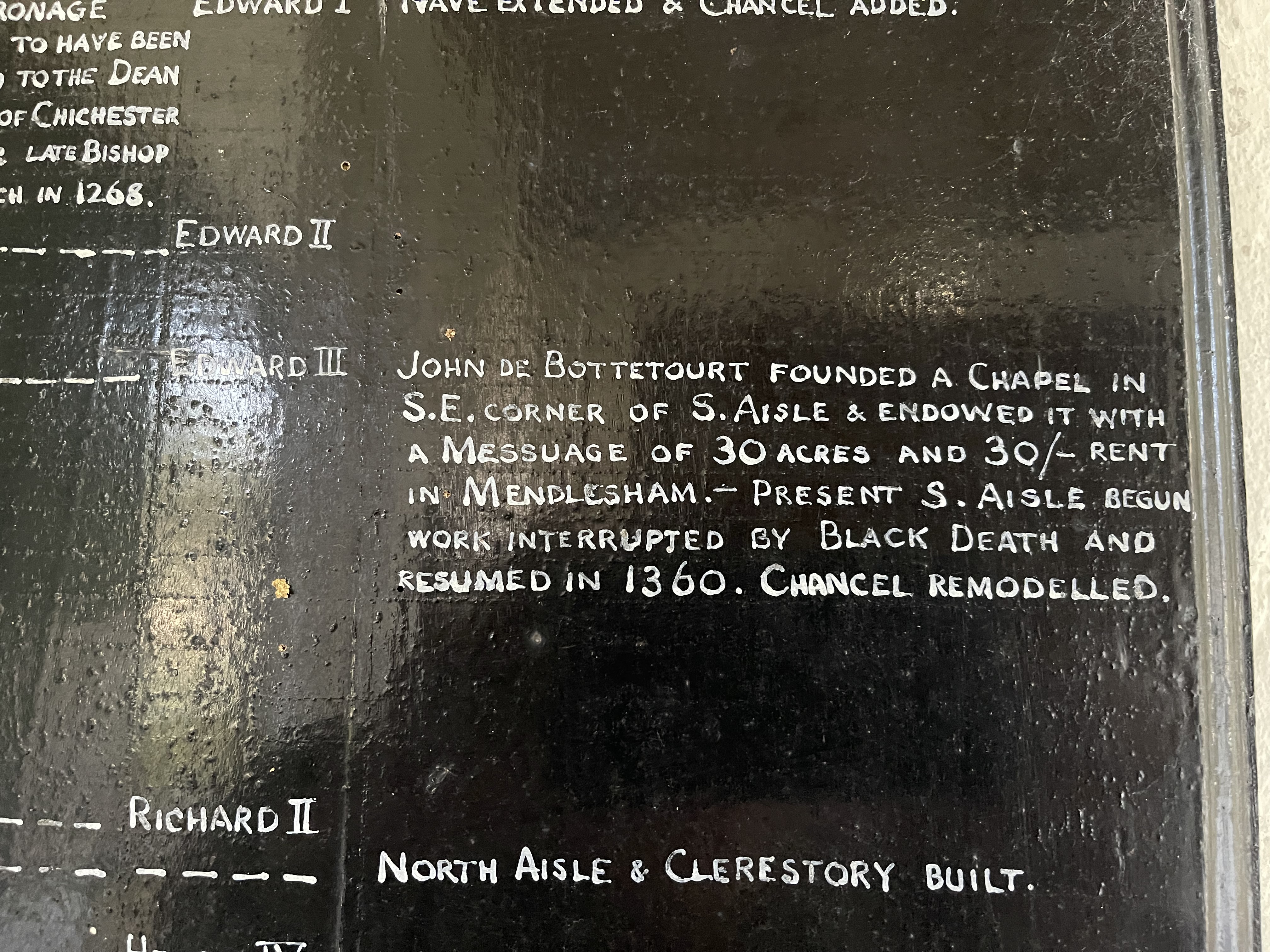Mendlesham, Suffolk
Sir John Botetourt was possibly living in Belchamp Walter in 1324 and possibly interred in
the Chantry Chapel in St. Mary's Church, Belchamp Walter. This is not known, as whether
he or his son/grandson was from Mendlesham, Suffolk.
There is a list of Priests/Vicars on a plaque to the North door (the main entrance) where Sir John is mentioned as patron
who was responsible for the construction of a chapel that had its construction interupted by
the Black Death - 1346 to 1353.
Top
This page is part of an on-going research project on the history of Belchamp Walter and
the manor of Belchamp Walter.
If you have found it making a web search looking for geneological information then please bookmark this page and return
often as I am likely to make regular updates. If you delve deeper into this website you will find many other pages similar
to this one.
Sir John Botetourt
The plague on the left of the North door.
Note the alternative spelling - Bottetourt (something not unusual when it comes to historical records)
The Sir John is more likely to have been Sir John of Belchamp Walter's grandson. The dates of the chapel are after his
death (1324). The interuption of the plaque (1346 to 1353) and the resumsion in 1360 make it more likley to be an off-spring
(descendant).
John Knyvet
The Wikipedia page says:
"
John Knyvet (1358/9–1418), of Mendlesham, Suffolk, was an English Member of Parliament for Huntingdonshire in September 1397.[1]
He was the son of John Knyvet (d.1381) that was the Lord Chancellor of England in 1372–1377 and his wife Eleanor (d.1388),
the daughter of Sir Ralph Basset (d.1341) of Weldon, Northamptonshire.[1]
By 1377 he had married Joan (d.c.1417), daughter and heiress of Sir John Boutetout (d. by 1377) of Mendlesham by his wife
Katherine. He married secondly Joan (d.c.1429).[1]
By his first wife Joan Boutetout he was the father of a younger John Knyvett who was M.P. for Northamptonshire in 1421.[1][2]
"
Thomas Knyvet
Jousting partner of a young Henry VIII.
The booklet in the Church
This can be found on the table of information and leaflets in the Nave. It briefly describes the main features of the
Church.
Rishangles Church - the fate of St. Mary's BW????
Having read that some of the "treasures" of Rishangles had been transplated to Mendlesham, I thought it would
be interesting to look-up the Church at Rishamgles. The extract below was taken from suffolkchurches.co.uk and was
written by the great Simon Knot.
Simon Knott on Rishangles church:
"
In a brief flirtation with lunacy in the 1970s, the Diocese sold off this and several other churches to the highest bidders.
Perhaps the parish had lost confidence in itself, or perhaps it was a well-meaning, if short-sighted, attempt to
rationalise resources. I use the word 'lunacy' advisedly, for there are two reasons why some churches should
never be sold off for private use, and they both apply here. Firstly, this was a significant historic building,
which would certainly find itself in the care of the Churches Conservation Trust if it was abandoned today.
It had a scattering of medieval glass, a brass (now at Thorndon), and a significant 17th century memorial.
The gorgeous font is now at Mendlesham, as are the benches. Secondly, a medieval parish church is at the heart of
an English country village. Maybe it did not seem that way back in the 1970s, when villages as small as
Rishangles might still have a shop, a post office, and even a school, and something of a community life.
But these have now gone, all over England,
and the parish church is the one survivor, except in places like Rishangles.
"
Background to this page
Having seen some of my history pages being found by those making an Internet search I have decided to add
a bit more context on how the pages came about.
Having visted Mendlesham and found the reference to Sir John Botetourt I now also find that there is a connection
to John de la Pole (or at least the de la Pole family. This connection was
through that of the village of Rishangles, Suffolk.


